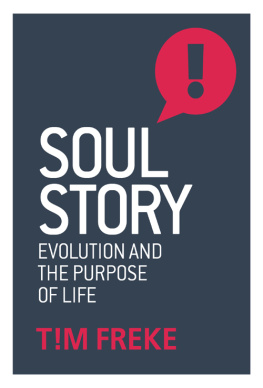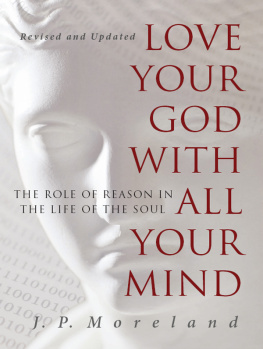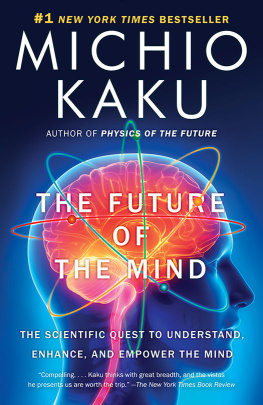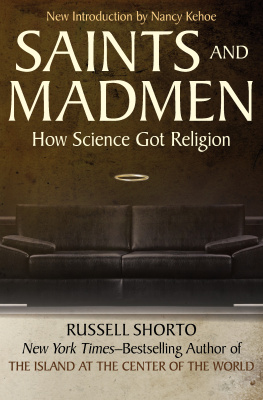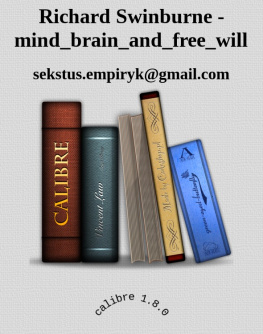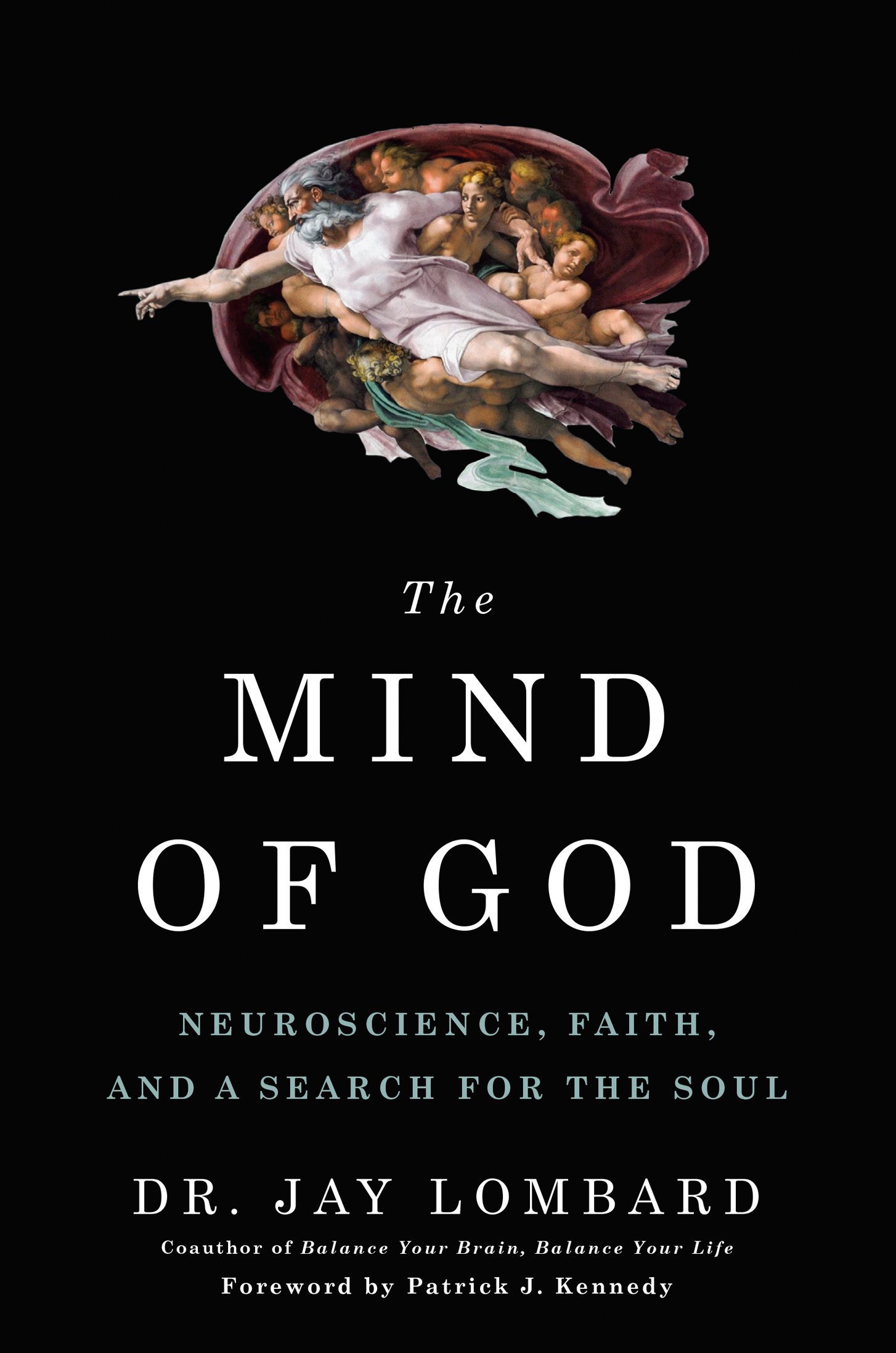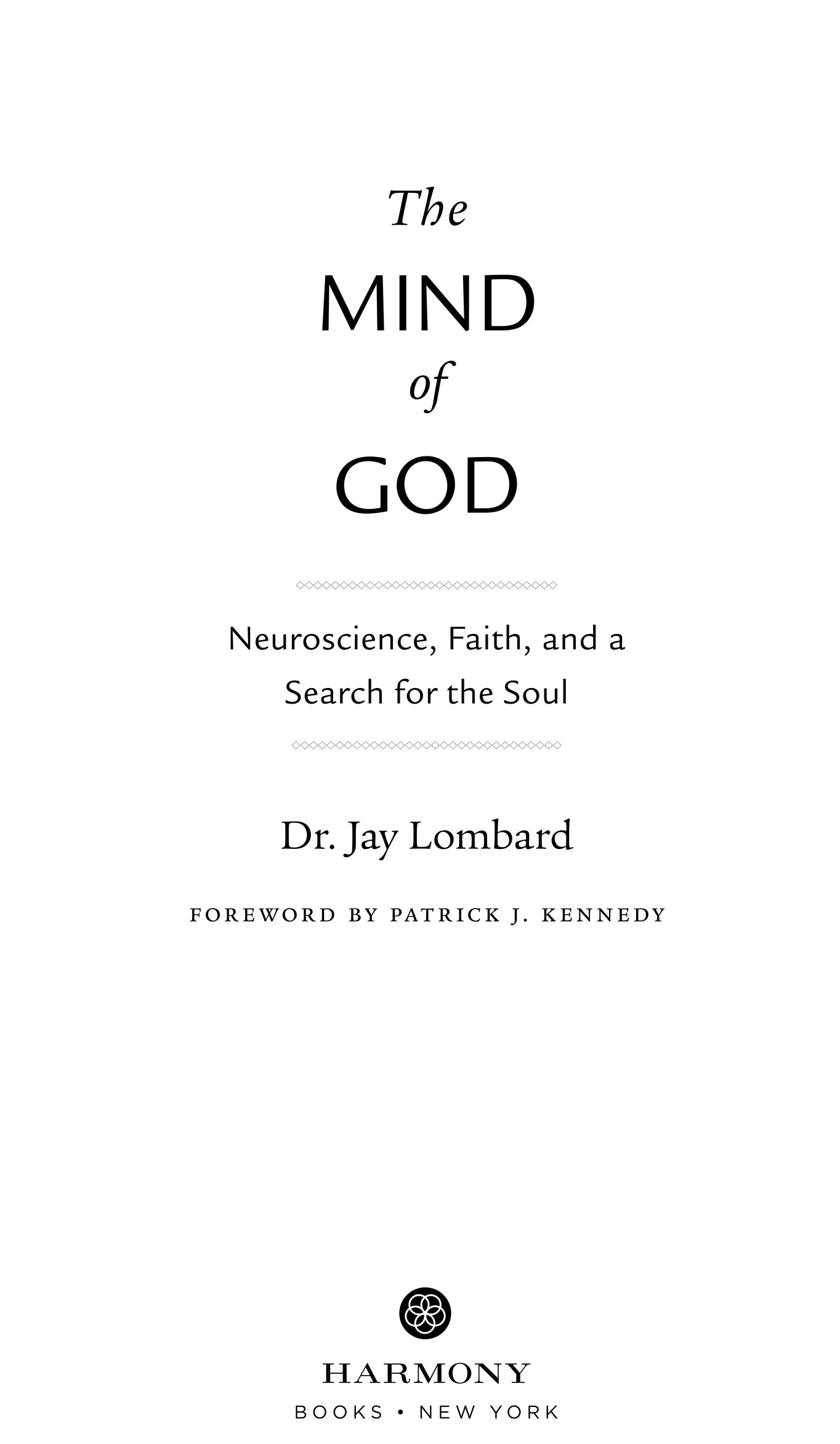In the interest of strict confidentiality, all reasonable measures have been undertaken to preserve anonymity, and thereby all patient names as well as certain details have been glossed for privacy.
This book is not intended as a substitute for the medical advice of physicians. Readers should regularly consult a medical professional in matters relating to their health, particularly with respect to any symptoms or conditions that might require diagnosis or medical attention.
One final note: Throughout the book, I refer to God by using the masculine pronouns he or him, despite the fact that our experience of God has both masculine and feminine attributes. I used these words for the sake of convention and sincerely hope that the reader will forgive me for this decision.
Foreword
Making the Invisible Visible
More than fifty years ago, my late uncle, President John F. Kennedy, made a public commitment to the American people to explore outer space within a decade. His administration also valued the inner space of the human mind, and he was a model for many future leaders, including me.
During the sixteen years I spent as the U.S. Representative from the First Congressional District of Rhode Island, I dedicated myself to achieving mental health parity, and since then, to support leading-edge research into the brain. The brain is an integral part of the body, to say the least, but it remains one of the least understood and most often ignored parts. Weve got some brain-related challenges, both individual and societal. And just as we can find, explore, and treat physical illnesses such as cancer, we can begin to better handle the disorders and diseases of our most necessary organ, the one where, after all, the self and soul reside.
This book is about the exploration of our inner space. As a modern culture, when we explore our inner space, we can find vast expanses of the beautiful and uncharted unknown. But tragically, we often find incredible conflict within ourselves and between each other. We find stress. Anxiety. Anger, even baseless hatred. These are the most urgent diseases of our time. Just spend any random hour in front of a cable news channel and youll see a worldwide epidemic of limited, lost, misguided, sick, or destructive minds bent on division. What can we do? We medicalize these problems, but the root cause is often existential, something deeper in origin. In this book, we want to explore what that means.
There is no health without mental well-being. Just as we have deeply delved into the fundamental origins of diseases like cancer, we need to explore, with similar drive and rigor, disorders of the brain. The magnitude and human cost of these conditions cannot be measured merely in economic terms; they touch upon the essence of our existence, the content of our lives. Untold numbers of people are suffering. Brain ailments are the number one cause of adult disability worldwide. Our children arent immune, either, and early intervention is critical: More than six million U.S. children experience emotional or behavioral problems. Perhaps no class of citizen is more on the front lines of mental incapacity than those in the military. More than half of the most seriously wounded soldiers from our recent wars suffer from traumatic brain injury (TBI) and/or post-traumatic stress disorder (PTSD). And among all these people, 60 percent receive no treatment. Returning soldiers are all but abandoned in a byzantine system, which perhaps explains why 20 percent of all our suicides are veterans.
None of this bodes well. We have good cause to worry about our countrys future. Children are increasingly anxious, stressed, and even violent, and among those who are treated, prescription drugs have become more and more permissive, even de rigueur. The first step toward addressing the root causes of these conditions is continued research, through projects such as the Brain Research through Advancing Innovative Neurotechnologies (BRAIN) Initiative, which is mapping and visualizing the circuitry of the brain, not only helping us to better understand complex human behavior, but also sparking profound new advancements in treating brain disorders. But we cant treat something we can hardly graspat least not optimally. Thats the idea behind One Mind and other global initiatives for brain health that involve people working together to radically accelerate open science to benefit all people affected by brain illness and injury, as well as the associated intellectual and emotional disabilities. There is definitely hope, but we need to fully grasp the scope of the problem.
Across the world, neuroscientists in the Human Connectome Project (HCP) have spent the past five years mapping the brain, compiling an unparalleled storehouse of neural data on the astoundingly intricate web of connectivity that sits inside our skulls. This virtual brain mapping now gives researchers invaluable access into the living brain structure and functionand ubiquitous dysfunction. With at least a million-billion synapses, and thousands of miles of neural wiringall of which guide our thoughts, create our feelings, retrieve our memories, and allow our consciousness to emergethe brain is the most fascinating but still the least comprehensible of our organs.
Not for long. Through the kind of neuroscience Dr. Lombard is doing, we seek to bridge that gap; to identify, prevent, and treat major diseases; to prolong life; and, perhaps most important, to improve quality of life along the way. Finally, we seek to heal a world thats in considerable agony right now.
But the reason Dr. Lombard and I assign this vaunted status to neuroscience runs deeper, and at the same time its simpler: Our mission is to collaborate, cooperate, and otherwise come together, not only to research causes and treatments of brain ailments but to prevent them from occurring in the first place. We achieve that latter goal by doing our part at every opportunity to make the experience of life for ourselves and others the least traumatic, painful, and meaningless. This, too, will be hard. Our suffering is great, and so widespread.
I know what this is like personally. I still need to manage my brain dysfunction. The most difficult obstacle I ever overcame was to turn my mental illnesses into a means by which to serve, to support others, and to work on becoming the best person I can be, for myself and my family. I have survived depression, bipolar disorder, alcoholism, and substance abuse. And through my own personal story, Ive come to understand the necessity of ascension, both private and collective. First destigmatizing, then identifying and studying, and finally ameliorating brain disorders is a mission as imperativeor more sothan putting more humans on the moon or Mars.


